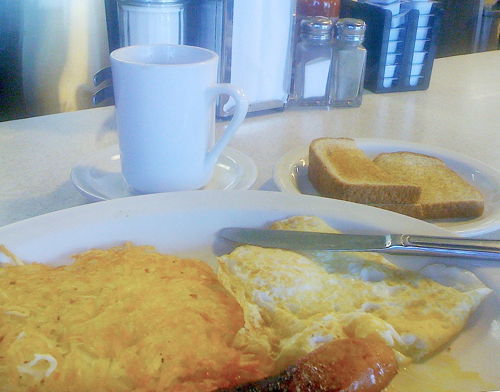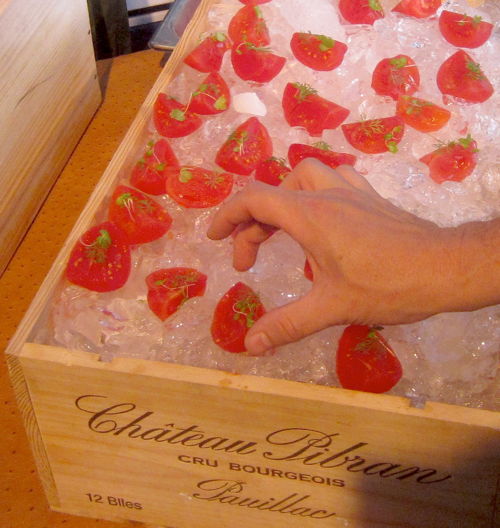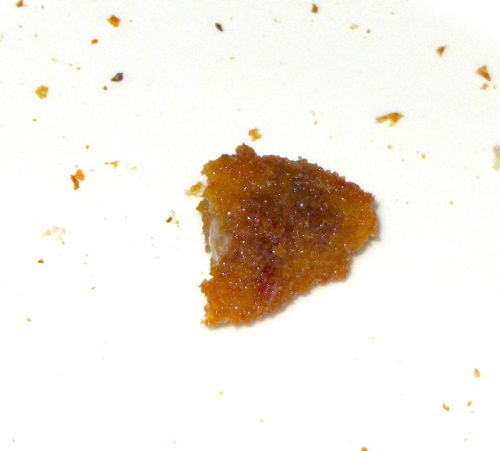
I'm always the last one eating at every shared meal -- not because I eat a lot, but because I take really small bites and cut everything up in order to make it all last as long as possible. At Thanksgiving, I cut up the pecans from my slice of pecan pie.

I have been told that this is a luxury, possible only in a siblingless life during which no one ever stabbed at the pancakes on my plate, squirted ketchup onto my ice cream or stole my fish sticks. Maybe so. But my dad ate very slowly too, because he grew up poor and always believed that every raisin, every egg, was precious.
Some macrobiotic eaters make a point of chewing each mouthful up to a hundred times -- even mouthfuls of soup. I never went that far, but I do notice how rapidly most people eat and how little they chew. Like sword-swallowers, they inhale mouthfuls almost whole -- often while talking. Even intelligent people who claim to love food eat this way. Why? Is food such a visual, intellectual, conceptual thing for them that by the time it hits their tongues it no longer matters?
Studies show that eating slowly helps us eat less and feel fuller sooner, and that eating rapidly can lead to overeating.
This week I interviewed Adam and Stacy Jed, the owners of San Francisco's Bluestem Brasserie, where executive chef Francis Hogan creates flavor-forward, nostalgic American classics with the help of grass-fed beef, in-house butchery and in-house curing. The Jeds want to launch a new wave in the Slow Food movement: slow eating.
"Eating slowly emphasizes the act of dining -- as opposed to eating for sustenance -- which includes all of the social elements of a shared meal," Adam Jed told me. "In a restaurant, eating slowly allows us to enjoy the entire experience of being a guest.
"Eating slowly is really how we are designed to nourish ourselves. When we eat slowly, we allow our body to recognize the food we are taking in and decide what we are going to do with it."
"We are human," he went on. "I know this is obvious, but we are in desperate need of personal human interaction and connection." Eating slowly helps that happen: Dining, as opposed to merely consuming, "is actually something that differentiates us from other primates. ... Taking the minute from the rest of your day to stop and relax ... to connect with a friend or make a new one: There is a social connection that is formed over a shared meal that no amount of technology can replace."
Eating slowly raises our awareness, not just of when we are satisfied but also of each flavor and texture and "all of the energy -- human, plant and animal -- that went into your meal."
Eating slowly makes dining into a spiritual and philosophical matter; each bite is like saying grace.
How slow is "slow"?
A three-course meal should take no less than about an hour and 15 minutes -- better yet, an hour and a half, the Jeds concurred.
"Eating should not be fueling. It should be nourishment -- of mind, body and soul -- and a time for bonding" with others, added Stacy Jed. She advocates "relearning the concept of intentional eating: respectfully savoring the meal in front of you and honoring the many hands it passed to reach you."
"Have you ever noticed how long it takes most thin people to eat their meals?" Adam added.
All images are by Kristan Lawson, used with permission.

